Upcoding & Undercoding: Definition, Examples, How to Avoid
If you've purchased your health insurance (or are eligible for Medicare) you should be able to visit a doctor without worry. However, patients can still fall victim to unsavory practices like , not to mention unbundling.
All of these terms refer to types of medical billing fraud: a shockingly big problem in the healthcare industry. Millions of healthcare fraud cases are reported each year, but many consumers still aren't sure how to address the problem when it happens to them. DoNotPay can always help you avoid predatory upcoding and undercoding practices.
Upcoding and Undercoding: How Do They Work?
Upcoding is typically when a healthcare provider will claim that you received treatment that was more expensive than the actual services performed. It's relatively easy to carry out: all a treatment provider has to do is assign an incorrect CPT code to your treatment.
Patients often don't contest these codes because of their unfamiliarity with the billing system.
Upcoding is also utilized when doctors perform services that you didn't explicitly request. Another form of upcoding is when doctors claim to use expensive equipment to further your treatment when no such equipment was used.
Undercoding is the opposite. In this case, a healthcare provider will give your treatment a CPT code that doesn't list every service rendered.
Undercoding is commonly used to give patients free services as an incentive to remain loyal to a practice. However, even if it seemingly works out to your advantage, it's still medical fraud.
How Does Undercoding Affect Patients?
Unlike upcoding, undercoding is more commonly a simple error rather than malicious intent. Even if your healthcare provider is the one that made the mistake, it can still be a problem for you because of the following reasons:
| Your Insurance Claim May Be Denied | Undercoding could set off a red flag when your claim is sent off to insurance companies for review. If your claim is rejected, you might have to pay for your treatment out-of-pocket. |
| You May Have to Take Action | Getting billed for more than you agreed to pay will almost certainly violate your insurance policy's terms. You can send demand letters to your healthcare provider for their mistake, but you might not get justice quickly. Court cases can be a complicated undertaking on your own. |
How to Report Upcoding and Undercoding by Yourself
If your medical bill seems too high or you notice a blatant error, rest assured that it can be straightened out. Here's what should be done to report medical providers for upcoding or undercoding:
- Call the Department of Health in your city or the general DOH for your state. If you're covered by Medicaid or Medicare, call 1-800-HHS-TIPS to report the fraud.
- Give the clerk the name of the healthcare facility that treated you and the details of the services that were (or weren't) rendered. You may be asked to provide additional evidence, such as receipts.
- A medical board will investigate your case and compensate you as needed.
If you have private insurance, you may also want to contact them and explain the situation. You should be able to find the company's support helpline on your insurance card.
Another way to straighten out upcoding or undercoding is to contact your physician directly. Since CPT codes are numerical, it's easy to make mistakes when entering them into billing software.
Unfortunately, speaking to your healthcare provider about these issues often doesn't go smoothly. Billing issues are sometimes handled by a Chief Financial Officer, not the medical staff. If you can't find the CFO's contact information, it will be difficult to get your problem solved.
If it's a smaller practice, you may be better off speaking with the head doctor. However, it can be hard to contact these individuals because they're busy assisting patients. If they avoid your correspondence for longer than a few days, try using DoNotPay instead.
If You’ve Experienced Upcoding or Undercoding, Fix It With DoNotPay
To hold healthcare providers responsible for , you'll need your correct CPT code. DoNotPay can help you locate it and demand to have your bill adjusted. Sometimes these issues have to be fully rectified in small claims court, but we've got your back: use our Send Demand Letters To Now product if needed.
If you want to find the correct CPT code and write a demand letter for bill correction but don't know where to start, DoNotPay has you covered in 5 easy steps:
- Search Fight Medical Fraud on DoNotPay.
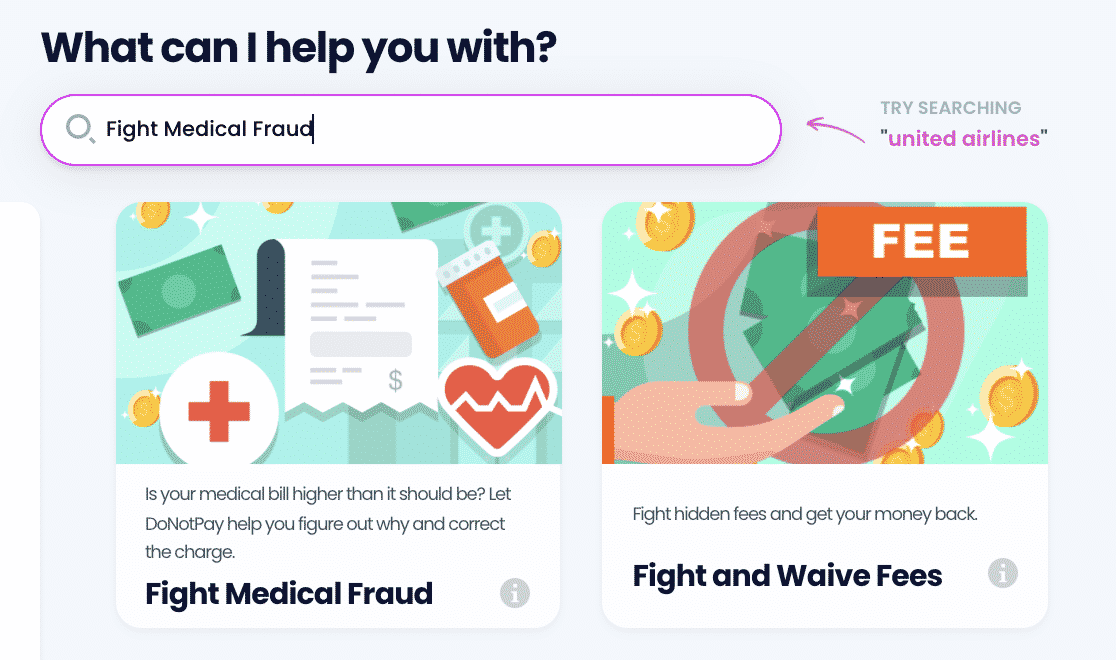
- Tell us the date of your visit, what you were treated for, and where you were treated.
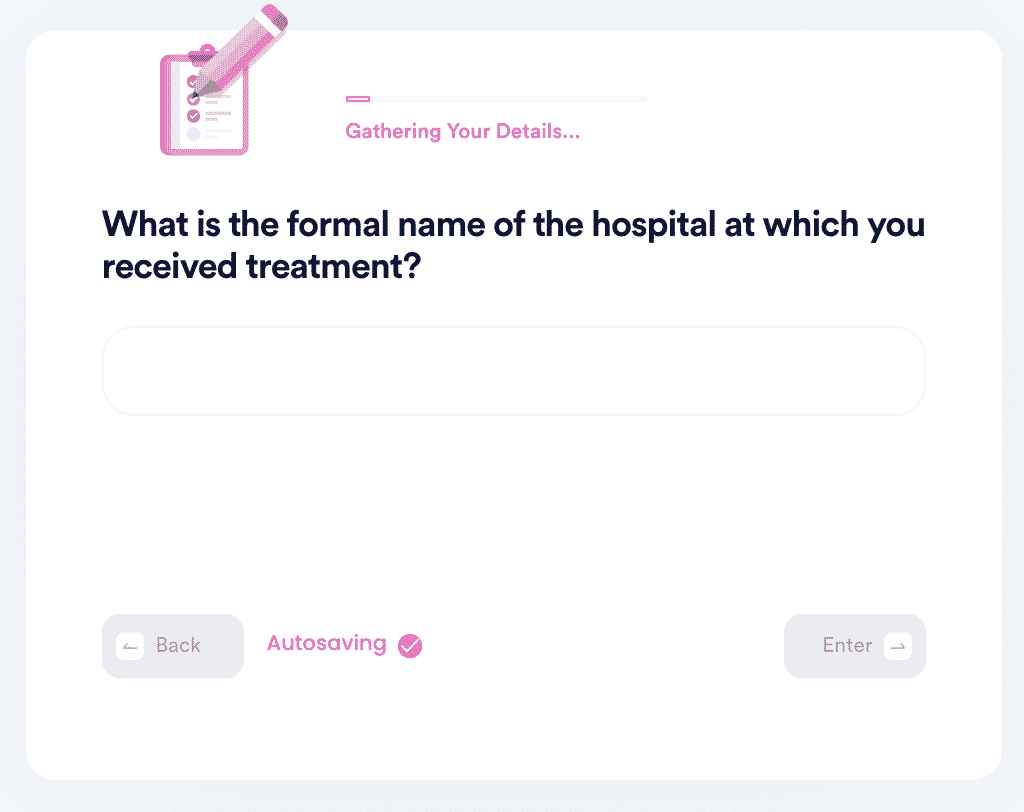
- Let us know what CPT code your visit was filed under. If you don't know, we'll generate a letter for you to send to your physician to request the code.
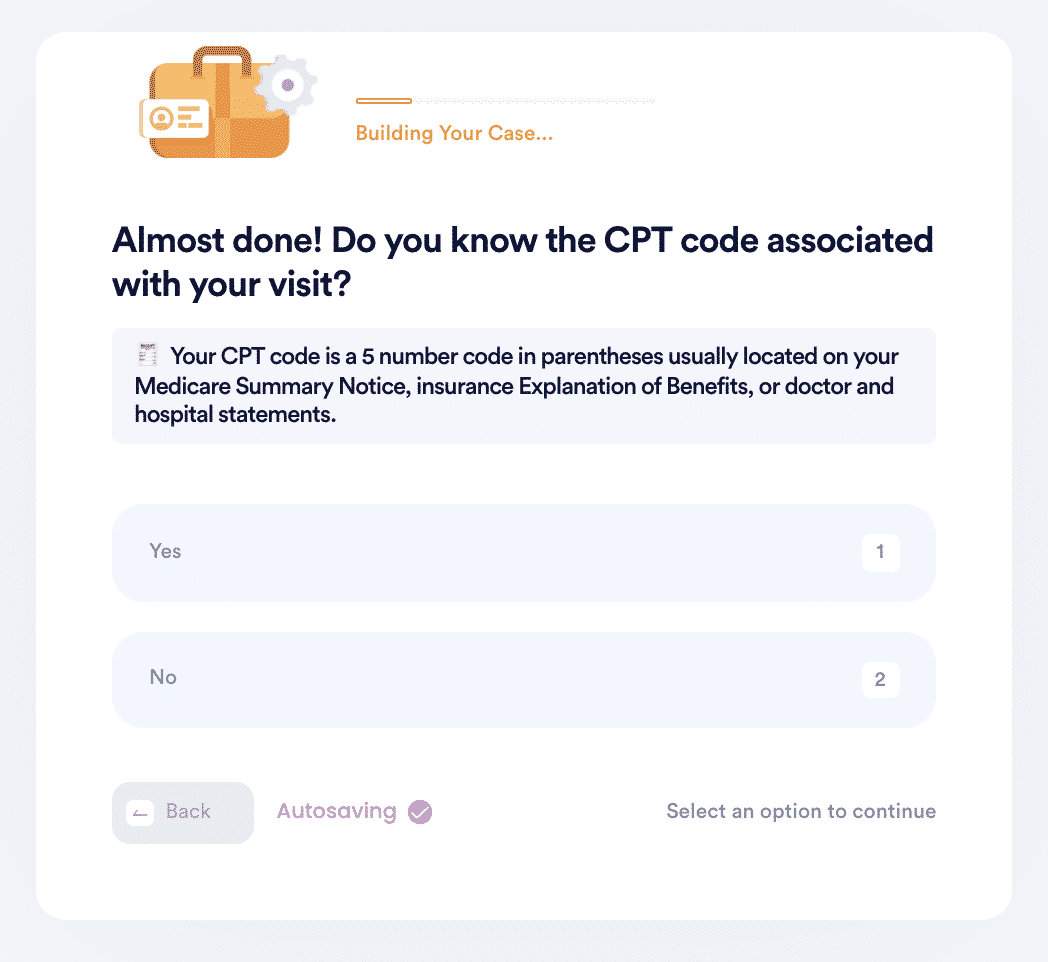
- Choose the correct CPT code or let us know if you want us to find it for you.
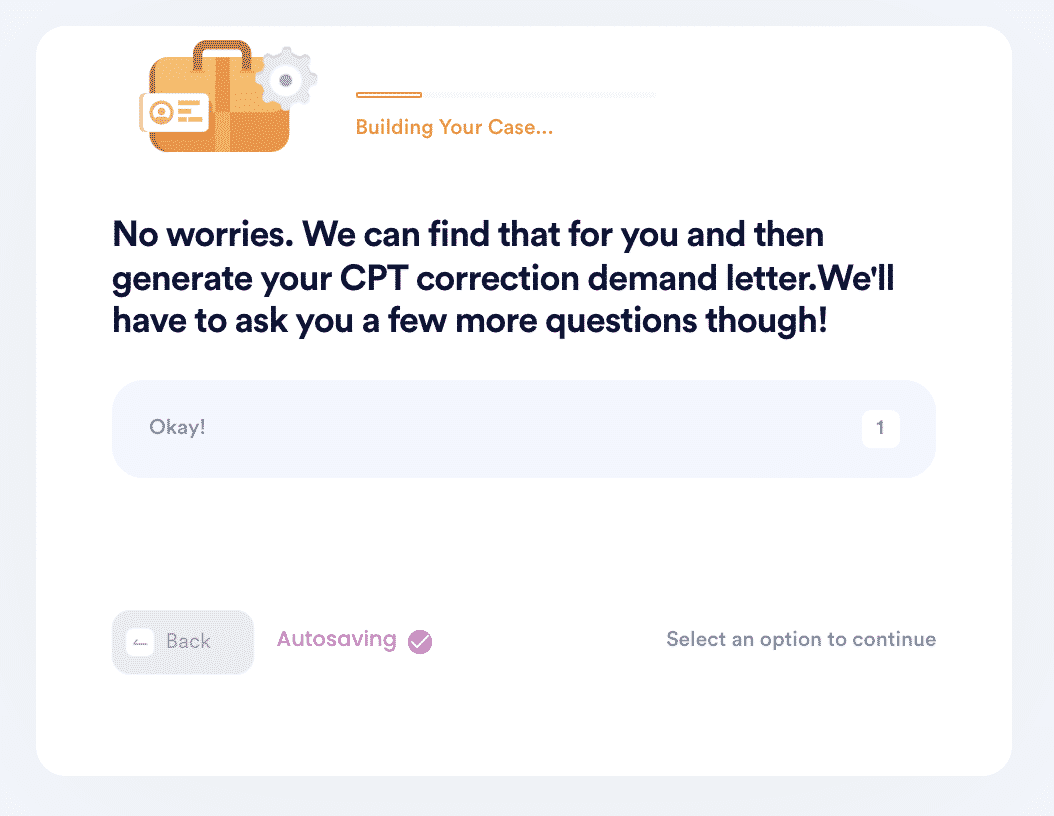
- And that's it. DoNotPay will automatically find the correct CPT code for your visit if you don't know it and then generate a demand letter on your behalf to send to your physician for a bill correction.
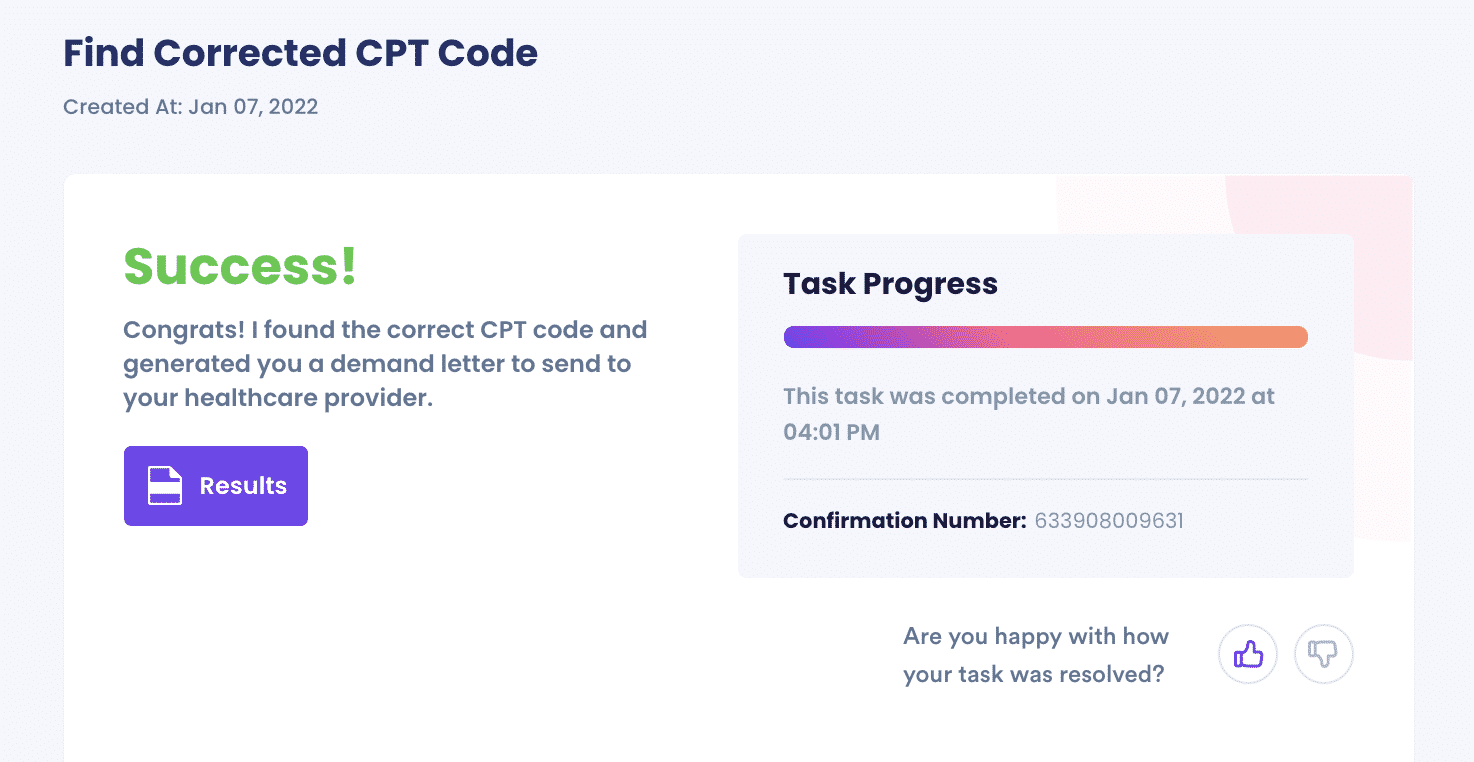
Here's why DoNotPay is the best way to combat upcoding or undercoding from any healthcare provider:
- DoNotPay generates your demand letter in seconds and sends it without delay
- The CPT Upcoding product is so simple to use that it can be completed in less than a minute
- DoNotPay's effectiveness is proven by our thousands of satisfied users.
DoNotPay Can Stop All Kinds of Harmful Healthcare Fraud
Whether you've got Medicare or private insurance, DoNotPay will work with you to solve any billing issues. We help patients in every U.S. state, no matter how big or small the bill.
What Else DoNotPay Can Do?
Aside from reporting upcoding and undercoding, we can also help you address the following:
- Upcoding
- Report Medicare Fraud
- Medicare Fraud
- Health Care Fraud
- Medicare Medical Fraud
- Report Medical Billing Fraud
- Upcoding and Unbundling
Check out these other products:
- Negotiating any hotel bill
- Requesting a price match
- Disputing a traffic ticket
- Signing up for risk-free virtual credit cards
Each solution can be accessed and completed in seconds through your DoNotPay account.
 By
By